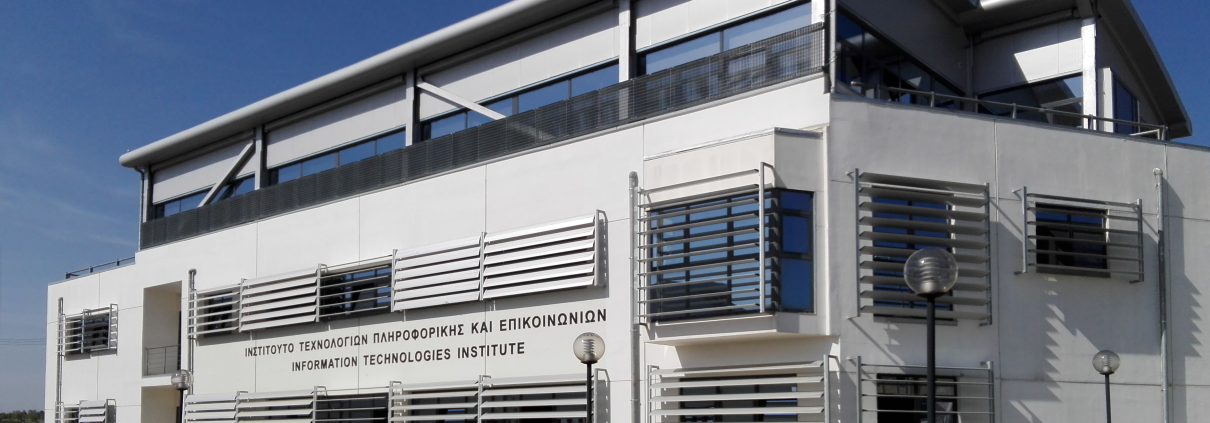CERTH driving technical excellence in DATA CELLAR
Founded in March 2000, the Centre for Research and Technology, Hellas (CERTH) has, for over 24 years, been keeping an eye on a smarter, greener, more inclusive and connected Europe, thus positioning itself at the forefront of technological research through its dedication to promoting innovative research for the benefit of society. It is a legal entity governed by private law with non-profit status, supervised by the General Secretariat for Research and Innovation (GSRI) of the Greek Ministry of Development.
CERTH has evolved through an exciting journey of research excellence, from a small isle into a leading research centre of scientific excellence. Artificial intelligence, advanced robotics and the Internet of Things, green energy and sustainability, holistic approaches to healthcare and nutrition, autonomous vehicles and the smart evolution of cities, are the primal fields around which CERTH’s five institutes are organized: the Chemical Process & Energy Resources Institute (CPERI), the Information Technologies Institute(ITI), the Hellenic Institute of Transport (HIT), Institute of Applied Biosciences (INAB), and the Bio-economy and Agro-Technology Institute (IBO). These bring together more than 1600 people (engineers and scientists in their majority), in 7 regions and 9 cities of Greece.
At the same time, implementing CERTH’s vision for entrepreneurial growth, its 23 spin-off companies operate with intense activity, achieving great progress. By the same token, CERTH’s Technology Transfer Office has forward momentum and a constant vision of contributing to the creation of social and economic value through the commercial exploitation of research outcomes.
The Information Technologies Institute (CERTH-ITI) has been a founding member of CERTH. It is one of the leading institutions in Greece in the fields of Informatics, Telematics, and Telecommunications, with long experience in numerous European and national R&D projects. It is active in a large number of application sectors (energy, buildings and construction, health, manufacturing, robotics, (cyber)security, transport, smart cities, space, agri-food, marine and blue growth, water, etc.) and technology areas such as data and visual analytics, data mining, machine and deep learning, virtual and augmented reality, image processing, computer and cognitive vision, human-computer interaction, IoT and communication technologies, navigation technologies, cloud computing, distributed ledger technologies (blockchain), (semantic) interoperability, system integration, mobile and web applications, hardware design and development, smart grid technologies and solutions and social media analysis.
The Chemical Process & Energy Resources Institute (CERTH-CPERI) has also been a founding member of CERTH. Its mission is to pursue scientific and technological excellence by conducting high-caliber basic and applied research, and by developing novel technologies and products, in response to the needs of the Greek and European industrial and productive sectors. Its specific areas of research are Clean Energy, Climate and the Environment, Sustainable Industry and Bioengineering/Biomedicine, Material Technology, Processes and Simulation/Modelling. CPERI’s research activities develop and promote modern technologies for the low-carbon production, storage and capture of energy and novel technologies for natural resource management, pollution, environmental protection and health. The activity of CPERI around the development of new Materials and Processes with applications in energy, environment, circular economy and health is also instrumental. Hence, the thematic priorities of CPERI are supporting its placement as the “Low Carbon Economy Technologies Institute”.
Which is the role of CERTH in DATA CELLAR?
Being an experienced RTO in the realm of energy systems, CERTH has a pivotal role to play within DATA CELLAR. Having a focus on technology integration and evaluation of the solutions from a holistic perspective, CERTH contributes to the evaluation and benchmarking of the results, as well as adaptability to other frameworks and conditions. For this reason, CERTH has been given the role of Scientific Coordinator within the project, with the aim of guaranteeing proper technical and scientific monitoring and evaluation of project progress. As scientific coordinator, CERTH has helped in the assessment of data coming from the Validation Cases, while also supervising the activities of all R&D partners involved in the project, in order to encourage scientific dissemination and the promotion of knowledge sharing in an Open Science approach. Moreover, CERTH is also a key technical partner, contributing important software components to the DATA CELLAR platform, like the Dashboard-HMI component, which is the end user’s window onto DATA CELLAR, and the data anonymization and aggregation modules.
Why is CERTH important for DATA CELLAR?
CERTH is bringing into the project a considerable amount of technical expertise in key parts of the DATA CELLAR effort. First, CERTH is providing its INTEMA.grid toolkit, which is based on the open Modelica code platform, to develop semi-physical models of multi-type building assets, supported by appropriate data analytics algorithms. Secondly, CERTH is providing its VERIFY module, which uses the available (historical and real-time) data to perform environmental and economic assessments, performing economic (Life Cycle Cost) and environmental (Life Cycle Assessment) analysis for energy production/consumption systems, including storage assets and materials, according to ISO 14040 and ISO 14044 standards. Thirdly, CERTH also brings its expertise in visual analytics to bear on the consortium’s efforts, as part of the task of development of the human-machine interface, which CERTH is leading. As part of this task, CERTH has also been heavily involved in the overall DATA CELLAR architecture, especially as it pertains to the transfer of data between components. Finally, CERTH is responsible for identifying the strategies, guidelines, and algorithms for data aggregation and anonymization, and their subsequent implementation.





